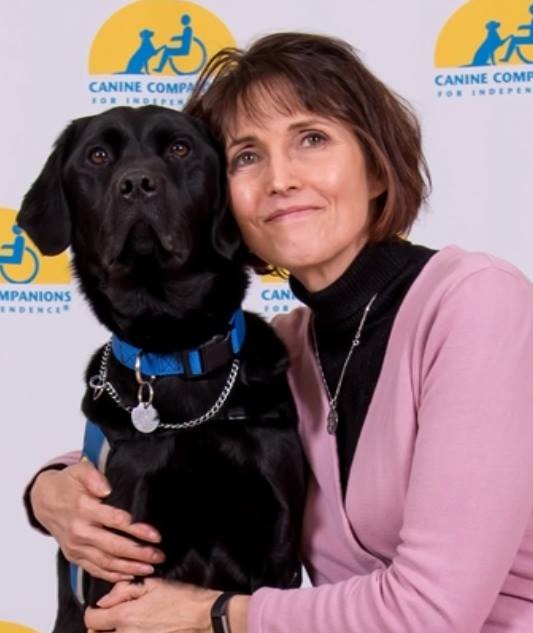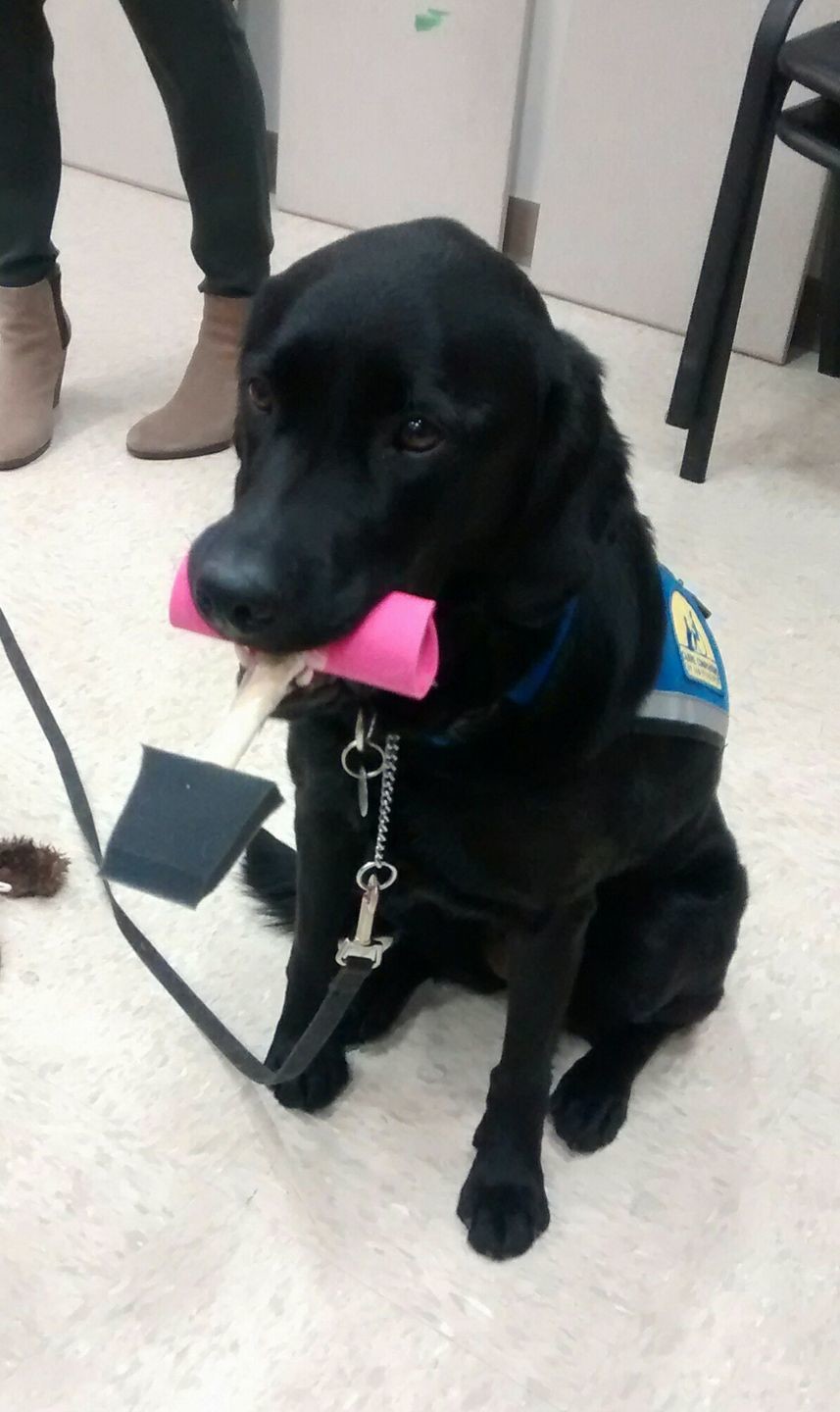Canine helps patients of Mercy’s art-therapy program
Rally II brings ‘love, kindness, affection’ to behavioral health patients

“She sometimes passes out art supplies,” laughed Marianne Hutcheson, a mental health therapist for Mercy Medical Center, referring to her dog Rally II, “like glue bottles and pens for my expressive writing group.”
About seven years ago, Hutcheson’s 26-year-old daughter Elizabeth, who has cerebral palsy, was matched with an assistance dog, Glenn II, through Canine Companions for Independence, a national non-profit organization providing highly trained assistance dogs for children and adults with disabilities. Seeing how helpful the dog was around her daughter, she recently sought to have one work with her art-therapy patients at Mercy’s outpatient behavioral health services facility in Garden City.
“It just occurred to me that it would be a great addition to my work,” said Hutcheson, who has worked at Mercy for about 20 years. “I thought it would be a great way for patients to get more comfortable with the whole idea of therapy.”
Hutcheson and Rally, a 2-year-old black lab and golden retriever mix, were paired together by CCI, and completed a two-week training course in Medford, N.Y. in February. The two returned home to Oceanside, where Hutcheson has lived for 30 years, and began getting into a routine with the patients.
The program provides therapy to people 18 and older with psychiatric illnesses, anxiety, depression and substance abuse. Art is used as a way to help the patients express themselves in a way aside from just talking about various problems they may have in their lives.
“We’re walking through the parking lot with the dog and the patients just brighten up,” Hutcheson said. “If the patient is new, it kind of eases their anxiety about going into their first appointment with the doctor and it just changes the whole therapeutic environment for them.”
Rally has been trained to respond to more than 40 commands, including turning light switches on and off, opening and closing doors and retrieving dropped objects. More specific commands include “visit,” during which Rally will go to the patient who said it and calmly put her head on their lap. Patients will then pet her and sometimes even talk to the dog about their problems, according to Hutcheson. If a patient says “lap” to Rally, she will put her front paws and half of her body on their lap so that they can hug her.
“Love, kindness, affection,” one member of the art class who grew up in Rockville Centre said of what Rally brings to the class. She sat in the seat next to him and licked the side of his head. “She unconditionally just loves us all.”
In the art classroom, Hutcheson cheered on Rally as she tugged at a rope to open a drawer, which at first wouldn’t open. Watching the dog accomplish a task teaches the patients about perseverance and completing jobs, she said.
“You see how people embrace the opportunity…[like], ‘Ah, that’s really special,’” said David Flomenhaft, director of Mercy’s behavioral health services. “Marianne’s creative-arts therapy and the animal that’s present at the same time I think is a winning combination.”
Though a facility dog, Rally goes home with Hutcheson, where Glenn, a 9-year-old Labrador mix, has helped her daughter over the years. Glenn helps Elizabeth, who often uses a wheelchair, take off her socks, for example, and brings her things that are far away. He can even open the refrigerator, grab a bottle of water and take it to her.
“Since she’s limited, I think the fact that somebody listens to her and she has control, helps her feel better too,” Hutcheson said.
She expects to expand Rally’s skills in the future. In addition to spreading unconditional love to the hospital patients, and bolstering patients’ social skills, Rally also sets an example for those looking for one to follow. She even cleans up her toys.
“She kind of teaches the patients that it’s good to have a purpose, and she feels good about working, and we transfer that to their everyday lives and situations: how it’s good to have a routine, how it’s good to have boundaries, how it’s good to communicate clearly,” Hutcheson said. “She’s just a great role model for them.”

 47.0°,
Overcast
47.0°,
Overcast 




